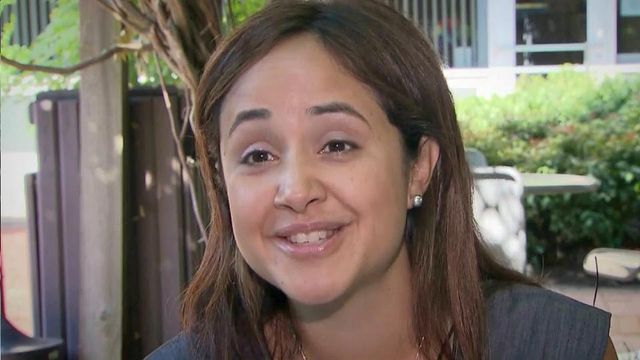Sandy Hook parent searching for 'middle ground' on gun issues
The North Carolina chapter of the National Alliance on Mental Illness held its annual conference at the McKimmon Center in Raleigh this week, with a special focus on the need to rebuild the mental health system in the aftermath of Sandy Hook.
Posted — UpdatedThe North Carolina chapter of the National Alliance on Mental Illness held its annual conference at the McKimmon Center in Raleigh this week, with a special focus on the need to rebuild the mental health system in the aftermath of Sandy Hook.
The conference, which continues Saturday, is about reforming mental health services in wake of the school shooting - and that means addressing issues surrounding gun violence.
“If we capitulate and say this is all a polarized political debate and it’s going nowhere, then we are going to be where we are and it will happen over and over again,” said Dr. Jeffery Swanson, a Duke professor.
A keynote speaker at the event is Nelba Marquez-Green, whose daughter, Ana Grace, was executed during the Sandy Hook shooting while hiding in the tiny bathroom of her first-grade classroom.
Marquez-Green was a mental health professional before the tragedy. Now, she fights full time for mental health reform and common sense gun laws.
“Nothing in our government is done overnight,” Marquez-Green said. “We’re talking about incremental steps,” she added.
Almost a year after the shooting, little has changed. Marquez-Green is often asked if the problem can be solved.
“I think of other people who face insurmountable odds, like Rosa Parks, like Dr. Martin Luther King,” Marquez-Green said. “I think what if some had asked them that and they said, ‘Oh OK,’ and stopped trying. We won’t stop trying,” she said.
Max Mattia is an ammunition manufacturer. He believes there is a third choice between pro and anti-gun groups.
“I firmly believe there is a middle ground,” Mattia said. “There has to be a middle ground,” he said.
The hope for middle ground is what brings groups like the National Alliance on Mental Illness together.
“We find middle ground and we keep going,” Marquez-Green said.
• Credits
Copyright 2024 by Capitol Broadcasting Company. All rights reserved. This material may not be published, broadcast, rewritten or redistributed.





